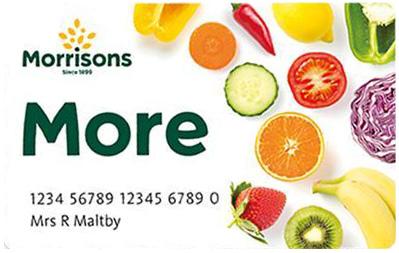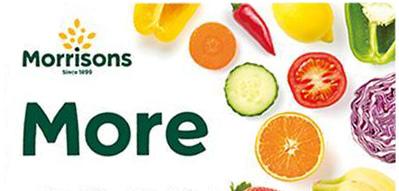Do Loyalty Cards influence us?



















Is the uK economy back?
covid fraud
Year 12 head to Frankfurt & More...





















Is the uK economy back?
covid fraud
Year 12 head to Frankfurt & More...




Will & Ted
Thursday 30 th March
To commence the trip, the highspirited group of students took for the buses and headed towards Heathrow Airport. After a lengthy wait and many checks for passports, we boarded the short but eventful flight, (featuring a crying baby as well as a happy birthday rendition from the whole of the plane for birthday boy Tommy Whatton). After an hour, we touched down at Frankfurt airport, which was greeted with a warm applause for the pilot.
After a brief stop at baggage collection, we were greeted by our tour guide (and now fan favourite, Anne). We were directed to our coach and began the short journey towards our hostel, with music booming from the back of the coach, spirits were certainly high. As the coach came to a halt, we ascended upon our destination. Following a register, we were handed our room keys and headed up to the room for the evening in order to refuel for a big day ahead.
Friday 31st March
In the early hours of the morning, students were awakened by the persistent knocking of Mrs Carr and Mr Compton, signalling that it was time to get ready and head downstairs for breakfast. Following a continental breakfast, the students were requested to head upstairs in order to get prepared for the day ahead.
With bags packed, we got a taste of the extremely efficient German Tram System, heading for the Deutsche Bundesbank. After a few changes of tram lines, we arrived at the bank and were greeted by our knowledgeable lecturer ‘Kühne Andre’. He gave the students an hour and a half long but interactive lecture on the history of the Euro, as well as the past economy of Germany and the banking system in Europe. After the lecture, the students were offered the chance to take a look around the historical and educational museum of the bank. This featured description of the Hyperinflation crisis in Germany post WW1, as well as the first bank notes produced in Germany. The bank offered a useful insight into the past history of Germany’s economy and was extremely beneficial for the students understanding of the financial system in the country.
Following on from the bank, we took a short tram, followed on by an underground towards the main city
of Frankfurt for an opportunity to get lunch and explore the culture of the city. Anne advised for many of the students to get a taste of the local cuisine, with market stalls present along the streets of the bustling city. Many of the students opted for the German sausage in a bun, known as a ‘Bratwurst.’ After lunch and free time, sights were set on the next destination. The Frankfurt Stock Exchange in the heart of the city centre was the next location for the students. Students were offered a chance to explore the museum and were able to actually overlook the trade floor and gain an insight into what working on the stock exchange looks like. After this interesting visit to the exchange, we headed towards the European Central Bank European Central Bank (ECB). After a lengthy security check, we were toured around the bank, and provided with discussions on the functioning and history of the bank.
Finally, the students took a brief walk towards the Kueche restaurant, where we were served up a 3-course meal of; Tomato soup to start, an
authentic German Jägerschitzel for the main, followed by a chocolate mousse for dessert. Departing the restaurant, we took a tram back to the hostel and headed up to our rooms again after a very eventful and successful day.
Saturday 1st April
Our last full day of fun began with an insightful tour through the ‘Gutenberg Museum’ in Mainz. During this enthralling hour we discovered how the original printing press was invented and witnessed a live demonstration from Jean-Luc our tour guide.


To conclude this educational but tiring day we arrived at what appeared to be a warm and welcoming restaurant. To the slight disappointment of the team, we were served a sub-optimal knuckle of pork, alongside a green and brown salad. However, we did not let this dampen our spirits and we ate up quickly and made our way back to our hostel, to refresh for our final day!
Sunday 2nd April

Following on from this, we took the coach west towards the picturesque town of Rudesheim. After a short walk through the centre we arrived at a cable car which we took up the mountain, enabling us to take in the beautiful views. At the top Anne passed on her knowledge of the local area and information regarding the Unification of Germany Statue – a personal area of interest for us history students too!

Sunday commenced with the whole group packing our suitcases and reminiscing on what an incredible time we’d had so far, followed by another tasty breakfast. To the excitement of the majority of the group, first up on the itinerary was a tour around the Deutsche Bank Park –the home of Eintracht Frankfurt F.C. Felix (an ex Frankfurt ultra turned tour guide) gave us an extremely insightful tour all throughout the stadium, including a visit to the instadium museum and even the press room.

Before getting our final coach home, we visited the Frankfurt main tower – a beautiful example of modern architecture in Germany. Upon travelling to the top of the tower, we were greeted with the breath-taking view of the surrounding city, giving us a final glance at the place we had grown to love.

We then hopped aboard the coach to have a final few hours of free time before we made haste to the airport. Despite being eager to get on the plane, we had to burn quite a few hours as we managed to arrive super early for the flight! By boarding time, we were all very tired and looking forward to returning home. We will treasure this trip for the rest of our lives!
 The Unification of Germany Statue
Here pictured is Ted Quaife and Oliver Painter enjoying the ride.
Eintracht Frankfurt F.C press room
The Unification of Germany Statue
Here pictured is Ted Quaife and Oliver Painter enjoying the ride.
Eintracht Frankfurt F.C press room




























During the Easter holiday, five of our year 12 economics students were selected to attend the Institute of Economic Affairs ‘Future thought leaders programme’. The application process was competitive, with over 300 students applying to take part on this week-long course. The week was filled with an abundance of different lectures, activities and challenges, led by numerous different speakers. The week started with an ice breaker exercise named ‘speed-networking’ where you had two minutes to introduce yourself to one of the other 40 individuals on the course. I thoroughly enjoyed this task, as it was an easy way to make friends early on, thus making the week more enjoyable and interactive. Following on from this, we were presented with many different talks centred around economics; with topics ranging from ‘An introduction to Monetarism’ to ‘The economics of football’ and ‘inequality’. These were the three lectures that interested me the most, as I picked up new knowledge, on topics that I wasn’t previously interested in. For example, during the inequality lecture, Steve Davies ’Head of Education at the IEA’ explained how the majority of wealth can be traced back to 1066, when William the Conqueror gifted the land he had won to his friends. Since, little of this land has been sold and therefore the majority of ‘wealth’ (in terms of land) is still owned by their descendants. As well as being highly informative, the lectures were also highly interactive. There were
questions commonly being asked, and alternative viewpoints being presented to the lecturer for them to assess.
On top of the lectures, the activities were also highly enjoyable. On the third day of the course, we were presented with a ‘values quiz’; where we had to fill out a Google forms which tested our own individual morality. Following completion, as a group, we analysed the proportions of different answers and put forward our opinions on each topic.
An example was the statements ‘capitalism benefits the wealthy more than the poor’ and ‘Deploying our military in another country is a bad idea’; where we had to give an answer along the spectrum from ‘strongly disagree’ to ‘strongly agree’. Seeing every individual’s viewpoint, along with the reason behind these viewpoints, was truly fascinating and subsequently the activity was one of the highlights of my week.
To finish of this insightful week-long internship, we all took part in a group
debate that we had been planning in our breaks throughout the week. The students were split into ten teams of four, with five different statements, where one team would be assigned the job to argue ‘for’ the statement, and the others ‘against’ the statement. My team’s statement was ‘The UK central bank should continue to increase interest rates’ of which we had to argue that we agreed. Thanks to strong planning and public speaking skills, my team came out victorious against the opposition, and actually was decided (by the IEA team watching) that it was the best overall debate of the week. This was the perfect way to top off an already extremely insightful and motivating week, and I am very grateful to have been selected to attend the internship. Once again, the speakers were fantastic, and were so helpful in answering any questions that us inquisitive students had. Finally, a big thanks to Mrs Carr who made us aware of this opportunity and recommended us to this internship.

The COVID-19 pandemic has had a devastating effect on businesses all over the world, leading to unprecedented levels of government support for struggling companies. However, amidst this financial aid, there have been reports of fraudulent activity by some businesses who have exploited government schemes for their own gain. The COVID-19 pandemic has provided ample opportunity for scammers to take advantage of vulnerable companies, and the government has been fighting a constant battle to detect and prevent such fraud.
The most high-profile case of COVID-19 related fraud is the scandal surrounding the US government’s pay check Protection Program (PPP). The PPP was designed to provide small businesses with loans to help them weather the pandemic. However, it has emerged that some large, publicly traded companies received millions of dollars in PPP loans, despite not meeting the eligibility criteria. The scale of the fraud was staggering, with over $500 billion in loans distributed through the program. One of the most egregious examples of PPP fraud was the case of Shake Shack, a popular fast-food chain. Shake Shack received a $10 million PPP loan, despite having over 8,000 employees and a market capitalisation of almost $2 billion. The company eventually returned the loan following public outcry, but the incident highlighted the flaws in the
program’s eligibility criteria.
In the UK, the government’s Coronavirus Job Retention Scheme (CJRS), also known as the furlough scheme, has been targeted by fraudsters. The CJRS was introduced to help businesses pay their employees’ wages during the pandemic, and has paid out over £67 billion since its inception. However, reports suggest that some employers have been abusing the scheme by claiming furlough payments for employees who are still working, or claiming for non-existent employees.

In one case, a company in the UK claimed furlough payments for a non-existent employee, who was supposedly on sick leave. The company received over £5,000 in fraudulent payments before being caught by HM Revenue & Customs.
In another case, a company claimed furlough payments for an employee who had left the company months before the pandemic began.
The UK government has launched a crackdown on CJRS fraud, with hundreds of investigations underway and several arrests already made. However, the sheer scale of the scheme means that detecting fraud is a difficult task, and it is likely that many cases will go undetected.
Fraudulent activity is not limited to government support schemes. There have been reports of businesses using the pandemic as an excuse to hike prices, or to sell fake COVID-19 cures and treatments. In the UK, a company
was fined £350,000 for selling a fake COVID-19 protection kit, which included ineffective face masks and hand sanitizer. The company claimed that the products were approved by the World Health Organization (WHO), which was found to be false. The pandemic has provided a fertile ground for scammers to exploit the vulnerability of businesses and individuals. As the world begins to emerge from the pandemic, it is likely that the fallout from COVID-19 related fraud will continue to be felt for years to come. Governments must remain vigilant and take action against those who seek to exploit the crisis for their own gain. Businesses must also be vigilant and take steps to protect themselves from fraudulent activity. These may be conducting background checks on suppliers and employees, or implementing robust anti-fraud policies and procedures. In conclusion, while the government’s support schemes have been a lifeline for many struggling businesses, the COVID-19 pandemic has also provided an opportunity for fraudsters to take advantage of vulnerable companies. Governments must take a tough stance against fraudulent activity, while businesses must remain vigilant and take steps to protect themselves from scammers. By working together, we can prevent COVID-19 related fraud and ensure that support reaches those who need it most.
Due to the cost-of-living crisis, the current rate of food inflation is 19.2%. The price of food and beverages rose at the fastest rate in over 12 months to March 2023. One major example is frozen fish and seafood, being 25% less expensive than fresh fish, whilst frozen broccoli is 50% cheaper than fresh florets.
Fresh food, on the other hand, is deemed more flavorful and nutritious, especially if it is locally sourced and in season. However, it can be less affordable, whilst also having a shorter shelf life. This can result in significant amounts of food waste. Furthermore, fresh food can be sourced and purchased locally, supporting farmers and businesses who may rely on their community for income. This in turn supports the local economy, and over time may improve quality of life in the local area thanks to the multiplier effect. Whilst it is generally accepted that fresh food is more nutritious, it is key to remember that fresh produce is often transported over
long distances and then left to sit on store shelves. The time lag between picking and purchasing can cause fresh fruits and vegetables to perish as they are exposed to light and air. Subsequently, the overall value of the fresh goods diminishes.

On the other hand, frozen or canned produce is generally packed immediately after harvesting, and nutritional value is maintained. Research taken out by the FDA (food and drug administration) and international food information council (IFIC), reported that: nutrients in fruits and vegetables are generally not lost during canning or freezing and that fresh and frozen have the same nutritional value. The convenience of canned and frozen may encourage people to opt for the frozen option.
Frozen food can be a convenient and more cost-effective option, due to its ability to be stored, which can consequently reduce a typical households food waste. Frozen food tends to be processed right after

harvest, preserving nutritional content. This is more significant at the time of writing as with such high inflation many households are forced to pick the frozen food which is worse for our health, as for many it is all they can afford because the real value of their income has decreased so sharply in the last year. Also, frozen food may contain added preservatives such as sugar or salt which can prove to have negative effects on health of the consumer.
There is no definitive answer to whether frozen food is better than fresh food. Ultimately, the choice between frozen and fresh food will depend on several factors, including personal preference, availability, price and nutritional needs. In general, it is recommended to consume a variety of both fresh and frozen foods as part of a balanced diet.




The UK economy has seen significant fluctuations in recent years, with the COVID-19 pandemic and Brexit having a major impact. While there have been some signs of recovery in certain sectors, it is difficult to say that the economy is fully ‘back’ to where it was prior to these events. In 2020, the UK economy experienced its largest contraction on record, with GDP falling by 9.8% due to the impact of the COVID-19 pandemic. However, the government’s response to the pandemic, including various economic support measures such as the furlough scheme, helped to mitigate some of the damage. In 2022 there was a 4.1% increase in GDP, the economy has shown some signs of recovery, but progress is slow with GDP growing by 0.1% in the second quarter of the year.
However, there are still concerns about the impact of the pandemic on various sectors, particularly the hospitality and travel industries, which have been hit hard by restrictions on travel and social distancing measures. Additionally, there are concerns about inflation, supply chain disruptions, and labour shortages, which could have a significant impact on the economy moving forward.
Brexit has also had a major impact on the UK economy. While the full effects of Brexit are still being felt, there have already been significant disruptions to trade and supply chains. There are concerns about the impact of Brexit on various industries, particularly the financial sector, which has seen several businesses relocate to other EU countries.
However, there are also some challenges and risks that could impact the UK economy in the coming months and years. One of the biggest is inflation, which rose rapidly in 2022 due to a combination of supply chain disruptions, rising energy prices, and increased demand as the economy recovers leading to inflation peak at 11.2%. This led to higher costs for consumers and businesses, and potentially limited the pace of the recovery. However due to government policy, inflation is decreasing but still to high as it is at 8.9%.
Overall, while there have been some positive signs of recovery, it is difficult to say that the UK economy is fully “back” to where it was prior to the pandemic and Brexit. There are still significant challenges facing the economy, and it is unclear how long it will take for these challenges to be fully addressed.










“Smart motorway” is a term used to describe motorways in the UK that use various forms of technology in the hope to aid traffic management. They can be grouped into three categories: controlled (use variable speed limits and have permanent hard shoulders), dynamic (have a hard shoulder that can be used in high traffic periods) and all lane running (have variable speed limits but there is no hard shoulder). They were first introduced by the government in 2006 in an effort to decrease congestion and increase capacity. Fast forward to the present day, and the government is being urged to scrap all existing smart motorways. This was after it was announced that all new smart motorway schemes where set to be cancelled following health and safety concerns.
Over the last 2 decades smart motorways have been criticized heavily by MP’s and prominent road safety bodies. For example: The RAC reported that half of drivers
avoid using lane one on all running smart motorways, defeating the point of increased capacity. Further concerns about safety have also been raised regarding the removal of the hard shoulder which acts as a safety net for drivers. According to figures by the Commons Transport Committee, the number of deaths on the hard shoulder rose from the years 2017 to 2019. Additionally, government figures show a total of 39 deaths between 2014 and 2019. Consequently, in January 2022 the government started a review into the cost and safety of the smart motorways and paused further construction work while waiting for the results of the data. As a result, the introduction of new smart motorways in Manchester, across the Pennines, and in Greater London were delayed; since, these have been cancelled. However, following this announcement, the government and national highways stated that they will continue to invest 900 million pounds into further safety
improvements as well as unveiling plans install extra emergency areas along the roads.
To conclude, constructing new smart motorways has been removed from the government’s road building plans. One can argue this is a positive implication, as initial estimations suggest that constructing future smart motorway schemes would have cost more than 1 billion pounds. Hence, cancelling these schemes will allow time to track public confidence and improve the design of smart motorways. Prime Minister Rishi Sunak stated that “All drivers deserve to have confidence in the roads they use to get around the country. That is why last year I pledged to stop the building of all new smart motorways.” Only time will tell whether this was the right decision, but for now, the public can rest assured knowing that the hard shoulder will still be a feature of the UK’s motorways.





A loyalty card is an identity card issued by a retailer to its customers as part of a customer incentive scheme that offers customers future discounts or rewards every time a transaction is made. The psychology behind these cards helps to explain why they are so effective at influencing our spending decisions. Loyalty cards give us one more reason to buy from a businessthe possibility of securing a free reward after making several repeat purchases. Studies suggest that these purchases occur more frequently when the customer knows they are getting closer to the reward meaning companies are likely to see shoppers returning after offering them a loyalty card. For the cards to be effective, customers need to believe that using them will be worthwhile, and the rewards on offer should be easily obtainable.

Loyalty cards encourage shoppers to return to stores more often and can even cause them to spend more than they were planning, generating increased revenue for firms. A well-known loyalty card is the Tesco Clubcard which has over 20 million members in the UK. After its introduction in 1995, customers were spending 28% more in stores within a year. Thanks to the ‘digitalisation’ of supermarket loyalty cards, vast amounts of data on spending patterns is being collected; this is often unknown to the customer which helps companies to present targeted products to their customers in the hope that they buy more. Running a loyalty card scheme can be quite expensive, especially when large discounts and offers are involved. Tesco will be cutting the value of Clubcard points by a third in June while Sainsbury’s and Boots are also reducing the value of their reward scheme’s points due to facing increased costs.

Loyalty cards don’t necessarily create loyal customers, instead, they may just create repeat buyers who are willing to switch to alternative companies when their existing loyalty cards no longer seem worthwhile. A clear example of this is when a swarm of customers went to social media to express their outrage and even threatened to switch their main supermarket after Tesco announced it would cut the value of Clubcard points, decreasing from 10 points per £1 spent to only 4 . With affordable companies such as Aldi and Lidl becoming popular options for the UK during the current cost of living crisis, companies may start to see the flaws of their loyalty card schemes. What’s the point of a loyalty card that doesn’t even create loyalty? Take a moment during the next couple of days and ask your family about what loyalty cards they have. Would they consider themselves ‘loyal’ to the companies? You could also find out if they think they are being ‘influenced’ by these cards, and if so, do they even mind?


1. What is your current role in the Civil Service?
I am an economist in the Office of the Chief Economist at Defra (Department for Environment, Food and Rural Affairs). I’ve been in the same team since 2019 but have worked in a number of economist roles including EU Exit analysis, Covid-19 response, Regulation, and Economic Strategy.
2. If you were prime minister what would you do?
As a Civil Servant, I have to be impartial so I couldn’t possibly say what I’d do if I was Prime Minister! What I would say is I don’t think there’s just one correct way of doing things, so choices about new policies can be difficult.
3. Favourite Sandwich?
My go-to lunch is a chicken Caesar baguette from Pret, but I’m biased because that’s the closest lunch spot to the office.
4. What subject and where did you study for your undergraduate degree?
I have almost finished my BSc in Professional Economics at the University of Kent. The course was designed by the University and the Government Economic Service so has modules on policy analysis and public economics, unlike most economics degrees. The course is four years long and I have one study day per week. The other four working days are split between working from home and in the office.
5. What advice would you give someone aspiring to enter the world of civil service?
I am in the first cohort of GES apprentices so I really didn’t know what to expect when I applied for the scheme. When I accepted the offer, I did so with the view that I could always reapply for uni the following year if I didn’t enjoy the job. I’m so glad I made that choice, I’ve loved working for Defra and have no regrets about the apprenticeship. I’ve visited friends across the country, and have my own uni friends from the apprenticeship so definitely haven’t missed out on the ‘uni experience.’ The apprenticeship has also allowed me to be financially independent and get a
head start compared with other graduates.
There’s several entry routes into the Civil Service, especially as an economist.
Most people join through the GES either as a degree apprentice or as a graduate, but it is possible to join later in your career. The GES schemes are very competitive so definitely don’t be disheartened if you don’t get an offer the first time you apply. If you’re thinking about joining as a graduate economist, choose your degree carefully. To qualify, your degree has to be at least 50% economics so be careful if choosing a joint degree with an uneven split. My advice for the application process would be to be familiar with Civil Service Behavioursthese can be found online and are used for all applications, interviews and assessing performance at work.
6. What are the best and worst aspects of your current role?
The best part of my job is seeing a policy that I’ve worked on be introduced and reading news articles about it. It’s great to see my work having an impact. The worst part of my job is the high turnover of colleagues into new roles. Most graduate level roles ‘rotate’ into new roles every year. This is great for development and meeting lots of new people, but it can be hard when you have a great team as the team dynamic changes when people move. One benefit of the apprenticeship scheme has been being able to stay in the same role for 2 or 4 years; as I’ve had the time to really get the most out of the job and build confidence.
7. What are your career goals for the future?
I’m planning on staying within the civil service after graduation.
I can choose to join the graduate scheme or can apply directly to roles that interest me. I’d like to take a year out of studying and then complete the Masters apprenticeship that’s offered to economist. I have an interest in Defra policies so would like to stay within the department or one of their agencies. I’m also reducing my working hours and going part-time which is another perk of working in the public sector.
8. What was your best memory of CGS?
It’s hard to choose just one best memory of CGS. I was really fortunate to be involved in lots of clubs and go on a number of trips abroad. One memory that I often reflect on is a particularly awful French exchange, which involved eating courgette as the main component for every meal, packed lunches that consisted of a single slice of bread and a whole carrot, no WiFi and a weekend of hiking with the fittest family in France. But I came away with some excellent stories and looking back, it was a great trip!
9. What are you currently reading or watching on Netflix?
I’ve just finished reading The Thursday Murder Club by Richard Osman. It’s the first fiction book I’ve read in a while and I got really into it. The chapters are also only one or two pages long. I don’t watch a lot of TV but my postwork guilty pleasure is reality shows. I’m looking forward to the new season of Selling Sunset on Netflix this week.
220g tin crushed pineapple with juice
100g/4 oz butter
350g/12 oz mixed dried fruit
175g/6 oz soft brown sugar
100g/4 oz glacé cherries, chopped
2 eggs, beaten
225 g / 8 oz self-raising flour
1. Pre-heat oven to 170C/150C fan oven/gas mark 3.
2. Heat the pineapple, butter, dried fruit, sugar and cherries in a large saucepan and melt together very gently without boiling.
3. Allow to cool.
4. Beat in the remaining ingredients and then pour into a lined 8”/20 cm round cake tin.
5. Cook for 1 - 1 & 1/2 hours, depending on oven and egg size. The cake will be firm when it is cooked.

























The CGS Economics department would like to offer ad space for YOU to advertise your business in our magazine, read by over a thousand within the CGS community each half-term. Whilst promoting your business to our many readers, you will support our objective to make the magazine self-funding.
As part of your sponsorship, Invo Design will assist with the design of your advert at no extra cost.



If you are interested please get in touch with our Development Director – Martha Ware martha.ware@cheshamgrammar.org


